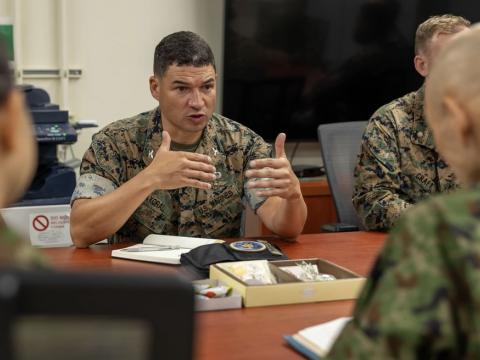Navy and DoD Launch Post-Quantum Resistant Crypto Effort
Officials with the Department of the Navy and the U.S. Department of Defense (DoD) are collaborating to launch their post-quantum resistant crypto effort, a spokesperson with the Navy announced. This is a new strategy federal officials will use to ensure that the technologies they acquire and utilize are protected from the rising cybersecurity threats posed by adversaries.
But as Jane Rathbun, chief information officer of the Department of the Navy, noted, this effort marks the beginning of a long journey in this complex space.
“We understand that there is a lot of work to do in that space with our big providers, making sure that what they’re developing, how they’re developing, meets our standards, because post-quantum resistant crypto is not going to be a one-size-fits-all kind of proposition,” Rathbun said at the WEST 2025 conference in San Diego.
The new software requirement will call for federal officials and their industry partners to constantly communicate their capability needs and ideas, according to Rathbun. Frequent conversations can bring an issue or misunderstanding to light sooner, allowing crews to produce the technology better and more quickly. This announcement also signifies a major change surrounding which technologies the DoD will be interested in acquiring, Rathbun warned.
“It is going to require understanding of our mission use cases, understanding of our use of spectrum, and so engaging them and working with them so that when they come to us and say they have post-quantum resistant crypto built in, we can say, ‘Yes, you do,’ or we can say, ‘No, you don’t. We’re not going to buy from you,’" Rathbun said. "And so that’s changing, and that’s our set of workforce and a set of skills that we maybe didn’t think about the way we do now.”
Navy officials said the change will ideally address a major question in the warfighting capability production process: how to develop capabilities as fast as possible while also ensuring that they are as safe and secure as can be.

Post-quantum resistant crypto is not going to be a one-size-fits-all kind of proposition.
“But one thing the cyber operators have taught me in the last two years is they come to me all the time and say, ‘Did you know this company x, y and z isn’t cutting mustard?’ And so we like their product,” Rathbun said. “We want to work with it. We’re going to work with you to figure out how you make it cyber secure.”
“I spent all day on Friday with one of our partners having this very conversation,” Rathbun added. “One, you need to move faster because we need these skills in our warfighting ecosystem. And two, you need to make sure you take into account all the cyber threats that we see, and they were very willing to do that. So, that is the way we’re going to approach it going forward.”
WEST is co-hosted by AFCEA International and the U.S. Naval Institute. SIGNAL Media is the official media of AFCEA International.





Comments